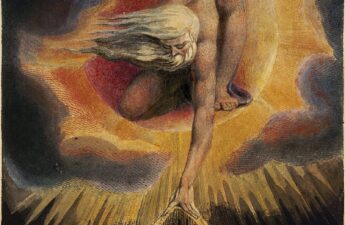Classical Civilisation and traditional Christian Theology, recognised four cardinal virtues- prudence, justice, fortitude, and temperance. The word ‘cardinal’ derives from the Latin word ‘cardo’, meaning hinge. The four cardinal virtues are called so because they are seen as necessary to the existence of all other virtues, for example- we cannot be loyal without fortitude; we cannot be honourable without justice, etc. They are the foundation to all other virtues.

Fortitude is one of the cardinal virtues that most of us probably believe we understand. It is often called courage, strength, endurance-the facing of fears. But as ever, when discussed as a virtue, it becomes multifaceted. What is true and virtuous fortitude?
Vulnerability
Sometimes vulnerability and weakness are linked, but in this context, vulnerability is seen as a catalyst to bravery. To display fortitude, one must be vulnerable. Unless there is a risk of personal injury, then we cannot show fortitude. The fact that we are not impenetrable is what allows us to embody this remarkable virtue. Our vulnerability provides us with an opportunity to choose how we will react in the face of grave threats.
“Fortitude presupposes vulnerability; without vulnerability there is no possibility of fortitude. An angel cannot be brave, because he is not vulnerable…Because man is by nature vulnerable, he can be brave.”
Josef Pieper, The Four Cardinal Virtues, 1965, Fortitude, pg. 117
In his book, The Four Cardinal Virtues, Josef Pieper goes so far as to say that fortitude is intrinsically linked to death -our ultimate vulnerability. To show bravery when faced with the possibility of death is the complete embodiment of fortitude, for death is our ultimate loss. He speaks of ‘readiness’- the readiness to fall, to die, to face your greatest injury. And all in the name of the greater good.
“All fortitude stands in the presence of death.”
Josef Pieper, The Four Cardinal Virtues, 1965, Fortitude, pg. 117
The Greater Good
So why would one be so ready to ‘fall in battle’? It is after all, the most natural instinct in the world to do whatever is necessary to survive. Piper suggests that a fortuitous person faces death in order to keep, or develop a more essential part of themselves. That is to say, that death -our ultimate loss- is not our ultimate fear, and the avoidance of death should not be our ultimate goal. There are parts of our spirit which we should die to keep intact. The need to safeguard this ‘essential intactness’ allows us to face personal and physical injury.
Aquinas said that fortitude gives man a ‘frimness’ of mind, so as not to forsake the good on account of difficulties. The practice of fortitude is in part making a choice to uphold the good, and sacrifice ourselves in its name.
“To take death upon oneself is not in itself praiseworthy, but solely because of its subordination to good.”
Josef Pieper, The Four Cardinal Virtues, 1965, Fortitude, pg. 122

Fortitude Is Not for the Foolhardy
“It is not the injury that matters primarily, but the realization of the good.”
Josef Pieper, The Four Cardinal Virtues, 1965, Fortitude, pg. 122
Pieper states that it is not virtuous if one casually tosses their life aside. Putting ourselves in the way of danger mindlessly is reckless and not brave. It is no sacrifice if we have no appreciation for our lives to begin with. The fortuitous person loves and appreciates their life, and yet chooses to offer it up to preserve the greater good, as to lose or sully this would ‘injure more deeply the inmost core of human existence.’
In order to show fortitude, we must first show prudence. We must use reason and foresight to know what good we are aiming for and what is essential for us to protect. To see clearly and thereby stand firmly by what is right and good. It is also dependent on justice, as without a ‘just cause’, there can be no fortitude. Justice is informed by prudence and fortitude is informed by both.
“Genuine fortitude presupposes a correct evaluation of things, of the things that one risks as well as of those which one hopes to preserve or gain by the risk.”
Josef Pieper, The Four Cardinal Virtues, 1965, Fortitude, pg. 124
Fortitude Is Not for the Fearless
To be fearless and to be brave are two different things. Fearlessness is blind, and virtuous fortitude requires a clear vision of reason and reality. If one doesn’t see the genuine risks that they face, or doesn’t appreciate the gravity of the situation, then they are not displaying fortitude. Pieper says that bravery cannot exist until a reasonable man is afraid, not out of timidity, but from a clear realisation of what he is about to face. He says that if a man, in the face of this true and reasonable fear, faces towards it, solely for the sake of the good, and for no other reason, then that man is truly brave.
“…the hands of the man most fit for battle are, literally, tied.”
Josef Pieper, The Four Cardinal Virtues, 1965, Fortitude, pg. 127




